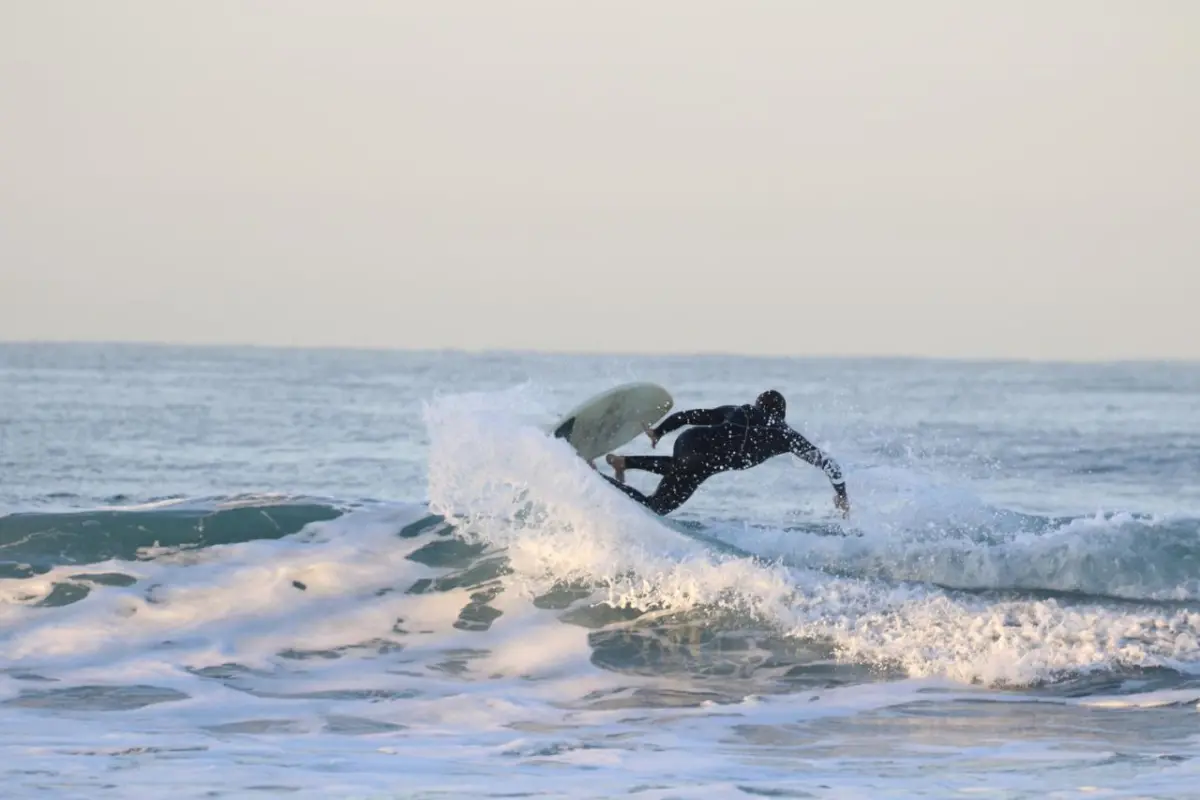In a shocking incident at Cocoa Beach, Florida, a 12-year-old girl from Pennsylvania, Magnolia Woodhead, miraculously survived a shark bite while enjoying a swim.
The brave young girl, in an interview with FOX 35 Orlando, shared the terrifying experience that occurred on Monday.
Woodhead stated that moments after leaving the water, she started screaming in pain, realizing that something was terribly wrong. Her mother, Melissa Stallings, recounted the horrifying scene when they saw blood dripping down Magnolia’s leg upon her father picking her up.
The Woodhead family had traveled to Florida from Philadelphia for a gymnastics competition and decided to enjoy a day at the beach. However, their plans took an unexpected turn when Woodhead became a victim of a shark bite while swimming south of the Cocoa Beach pier.
“My first thought was, like, I’m not going to do gymnastics,” Woodhead shared, revealing the initial fear that set in post-incident. Her mother expressed her surprise, saying, “Shark bite was not on the agenda for the day, I’ll tell you that.”
The extent of Woodhead’s injuries was evident when doctors required 50 stitches to close the wounds. They suspected that the shark had bitten her twice due to the multiple puncture wounds observed. Remarkably, even after such a traumatic experience, Woodhead showed tremendous resilience by attending and supporting her gymnastics teammates.
“I was just there because I really wanted to support my teammates because I know they’ve worked so hard on this contest and stuff,” Woodhead explained, displaying her dedication.
While Woodhead expressed hopes of returning to Florida for future competitions, she has decided to avoid going to the beach for a long time.
Cocoa Beach, situated in Brevard County, Florida, is located near Volusia County, which is famously known as the “Shark Bite Capital of the World.” According to the Florida Museum of Natural History’s International Shark Attack File 2022 report, Florida recorded the highest number of unprovoked shark bites in the United States last year.
Florida reported 16 cases, accounting for 39% of the country’s total unprovoked bites and 28% of global unprovoked bites. Interestingly, this figure represents a decrease from Florida’s previous five-year annual average of 22 incidents.
Volusia County had the highest number of shark bites within the state, with seven recorded cases, constituting a significant 44% of the state’s total.
This incident serves as a reminder of the potential dangers lurking in Florida’s oceans, especially in shark-infested areas such as Volusia County. It is crucial for beachgoers to remain vigilant and take necessary precautions to ensure their safety in these waters.
A Russian citizen was killed by a shark in the Red Sea in Egypt on June 8. Following the terrific news, many people worry as they plan to go on a beach vacation. Although there are occasional instances of sharks attacking humans, the chances of encountering such a situation and having to fight a shark are incredibly low. Despite some horrifying stories of survival, it is highly unlikely that you will find yourself in a confrontation with a shark in the near future.
How to Survive a Shark Attack
Surviving a shark attack can be a frightening and potentially life-threatening situation. While encounters with sharks are rare, it’s important to be prepared and take appropriate actions to increase your chances of survival. Here are some guidelines on how to survive a shark attack:
- River mouths are not the best place to swim. Avoid swimming estuaries
- If there is a fishing activity commercial or recreational, avoid swimming at that location
- Before you go in, watch for unusual fish activity, if you see fish jumping out of the water, it is a possible sign that a large fish maybe a shark might be nearby.
- It is advisable to maintain a distance of approximately 50 yards from individuals fishing from shore while swimming.
- Swimming during early morning or late at night can be nice, but it’s also when shark attacks are most likely.
- Don’t wear shiny objects in the water. Sharks may think it as a food to eat
- If you see a shark nearby, don’t panic, don’t splash the water, don’t make sudden movements
- As the shark swims around you, keep your head on a swivel and try to maintain eye contact. Sharks employ various attack strategies, including charging directly, circling before lunging, and even launching surprise attacks from behind. To defend yourself effectively, it is crucial to maintain constant vigilance and keep a watchful eye on the shark’s movements while planning an escape.
- In the event that immediate exit from the water is not possible, it is advisable to minimize the potential angles of attack by the shark. If the water is shallow enough, keeping your feet on the ground can be helpful. Slowly positioning yourself against a reef, pile, rock outcropping, or any solid obstruction can prevent the shark from circling around behind you. By doing so, you will only need to defend against attacks from the front.
- If you are engaged in diving near the shore, it may be necessary to descend in order to seek cover. Look for a reef or rock formation on the ocean floor as a potential hiding spot.
- In open water, positioning yourself back-to-back with another swimmer or diver allows you to have a comprehensive view and defense against potential attacks from any direction.
- To effectively defend yourself in the event of an attack, focus on striking the shark’s face and gills. Making the shark perceive you as a formidable and serious threat is your most effective course of action. Typically, delivering a powerful blow to the shark’s gills, eyes, or snout (the end of its nose) will likely force it to retreat. These particular areas are the shark’s main vulnerabilities.










